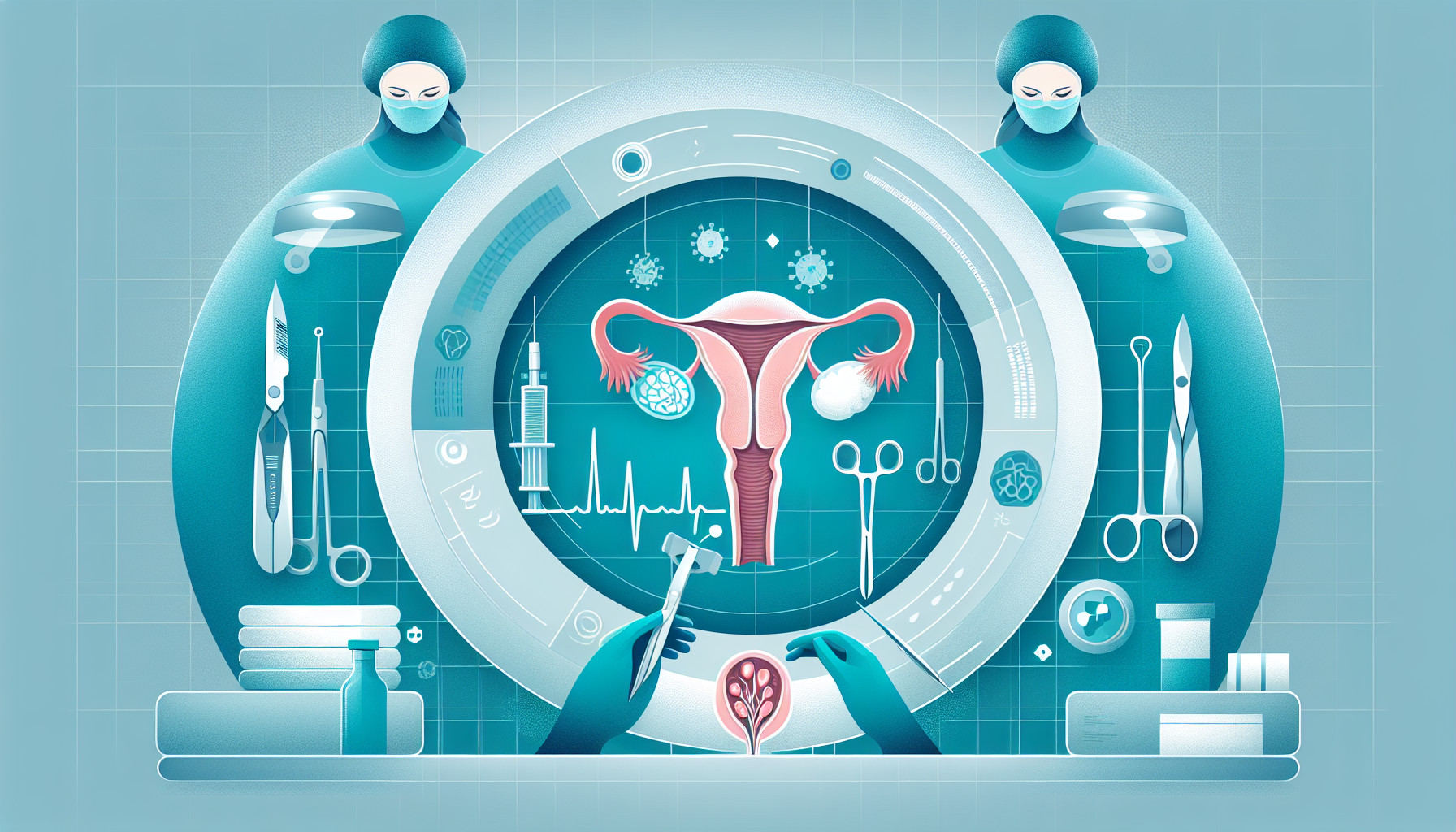Our Summary
This research paper explores whether having surgery for benign (non-cancerous) ovarian cysts increases a woman’s risk of experiencing fertility issues in the future. The study involved interviews with 1,537 women aged between 22 and 45, asking about their reproductive histories, including whether they had ever dealt with infertility or had surgery for ovarian cysts.
The researchers found that about 6.1% of the women had undergone cyst surgery. They also found that those who had surgery were more likely to report fertility issues afterwards, even when other factors such as age, race, body weight, cancer history, and the presence of endometriosis were taken into account.
Additionally, women who had had cyst surgery had marginally lower levels of a hormone called anti-Müllerian hormone (AMH) which is used as a marker of ovarian reserve (the number of eggs a woman has left).
The researchers conclude that having surgery for ovarian cysts seems to be associated with a higher risk of experiencing fertility issues. However, they also suggest that the conditions that cause women to develop cysts requiring surgery might also be contributing to these fertility problems.
FAQs
- Does having surgery for benign ovarian cysts increase a woman’s risk of experiencing fertility issues?
- What percentage of women in the study had undergone surgery for ovarian cysts?
- Does the research suggest any other factors that might contribute to fertility issues after ovarian cyst surgery?
Doctor’s Tip
Therefore, it is important for patients considering ovarian cyst removal to discuss their fertility concerns with their doctor before undergoing surgery. It may be helpful to explore alternative treatment options or to discuss fertility preservation options if fertility is a concern. Additionally, monitoring hormone levels and ovarian reserve before and after surgery may be beneficial in assessing potential impact on fertility. Ultimately, each individual’s situation is unique, so it is important to have open communication with your healthcare provider to make informed decisions about your ovarian cyst removal surgery.
Suitable For
Patients who are typically recommended ovarian cyst removal are those who have:
- Large cysts that are causing symptoms such as pelvic pain, bloating, or pressure on surrounding organs
- Cysts that are growing in size or changing in appearance, which may suggest a higher risk of malignancy
- Cysts that persist or recur after a period of observation or treatment
- Cysts that are suspected to be cancerous based on imaging studies or other diagnostic tests
In some cases, ovarian cyst removal may also be recommended for women who are experiencing fertility issues, as the presence of cysts can sometimes interfere with ovulation or the ability to conceive. Additionally, women who have a history of ovarian cysts or a family history of ovarian cancer may also be advised to consider surgery for preventive reasons.
Overall, the decision to undergo ovarian cyst removal should be made on a case-by-case basis, taking into account the individual patient’s symptoms, medical history, and overall health. It is important for patients to discuss the potential risks and benefits of surgery with their healthcare provider in order to make an informed decision about their treatment options.
Timeline
Before ovarian cyst removal:
- Patient may experience symptoms such as pelvic pain, bloating, and changes in menstruation.
- Patient may undergo imaging tests such as ultrasound or MRI to diagnose the cyst.
- Patient may try conservative treatment options such as pain medication or hormonal birth control to manage symptoms.
- If cyst does not resolve on its own or continues to cause symptoms, surgery may be recommended.
After ovarian cyst removal:
- Patient undergoes surgery to remove the cyst, either through laparoscopic or open surgery.
- Recovery time varies, but typically involves a few days to a few weeks of rest and limited activity.
- Follow-up appointments may be needed to monitor recovery and ensure no complications arise.
- Patient may experience relief from symptoms that were caused by the cyst.
- If patient is trying to conceive, fertility issues may be a concern, as research suggests there may be a higher risk of fertility issues after cyst surgery.
- Patient may consider fertility treatments or consult with a reproductive endocrinologist if fertility issues arise.
What to Ask Your Doctor
- What are the reasons for recommending ovarian cyst removal surgery in my case?
- What are the different types of ovarian cyst removal surgeries available and which one would be most suitable for me?
- What are the potential risks and complications associated with ovarian cyst removal surgery?
- How will the surgery affect my fertility and ovarian reserve?
- What is the recovery process like after ovarian cyst removal surgery?
- Are there any alternative treatments or management options for ovarian cysts that do not involve surgery?
- How likely is it that the cyst will come back after surgery?
- Will I need any follow-up appointments or monitoring after the surgery?
- How soon can I resume normal activities and exercise after the surgery?
- Are there any lifestyle changes or precautions I should take post-surgery to prevent the development of ovarian cysts in the future?
Reference
Authors: Shandley LM, Spencer JB, Kipling LM, Hussain B, Mertens AC, Howards PP. Journal: J Womens Health (Larchmt). 2023 May;32(5):574-582. doi: 10.1089/jwh.2022.0385. Epub 2023 Mar 27. PMID: 36971598
